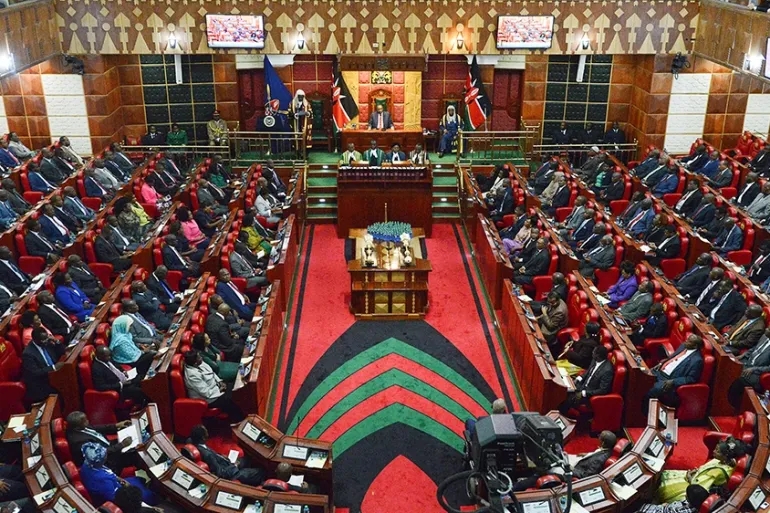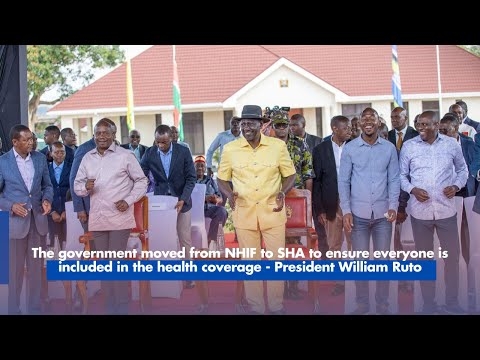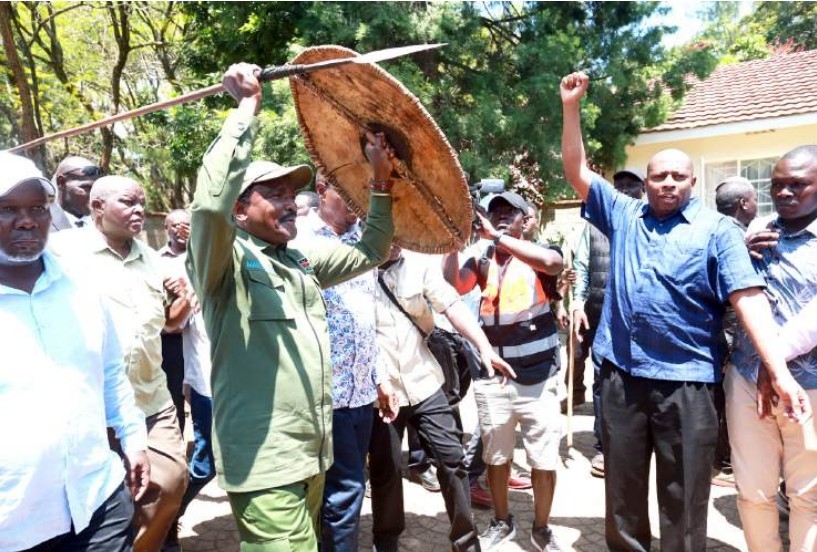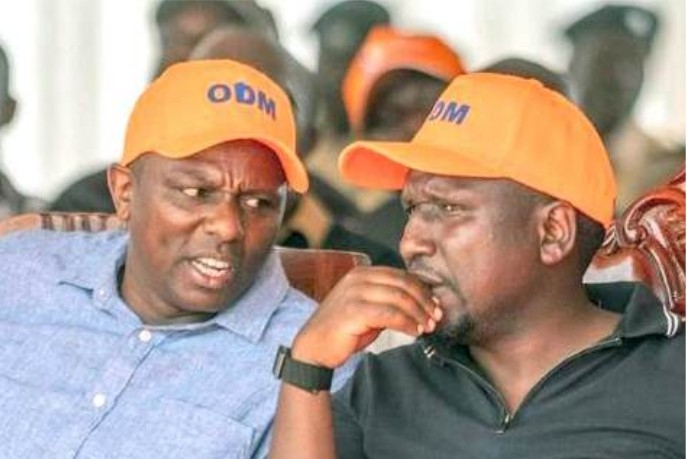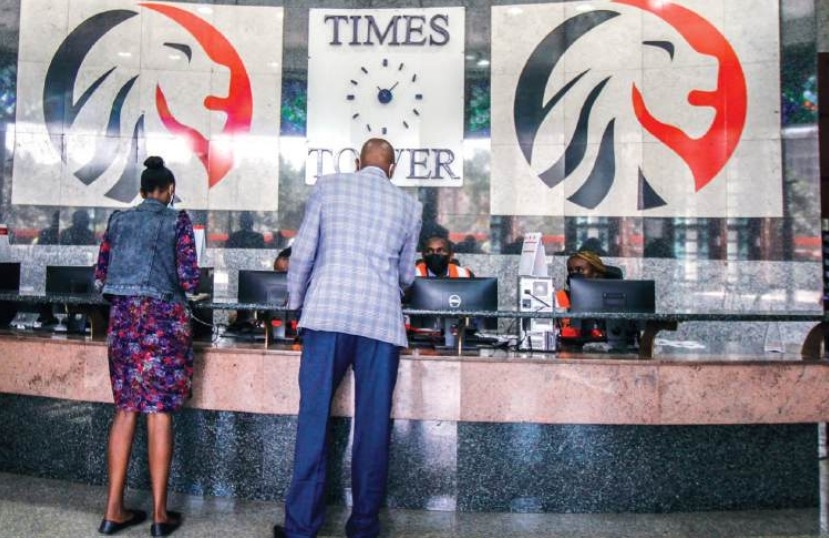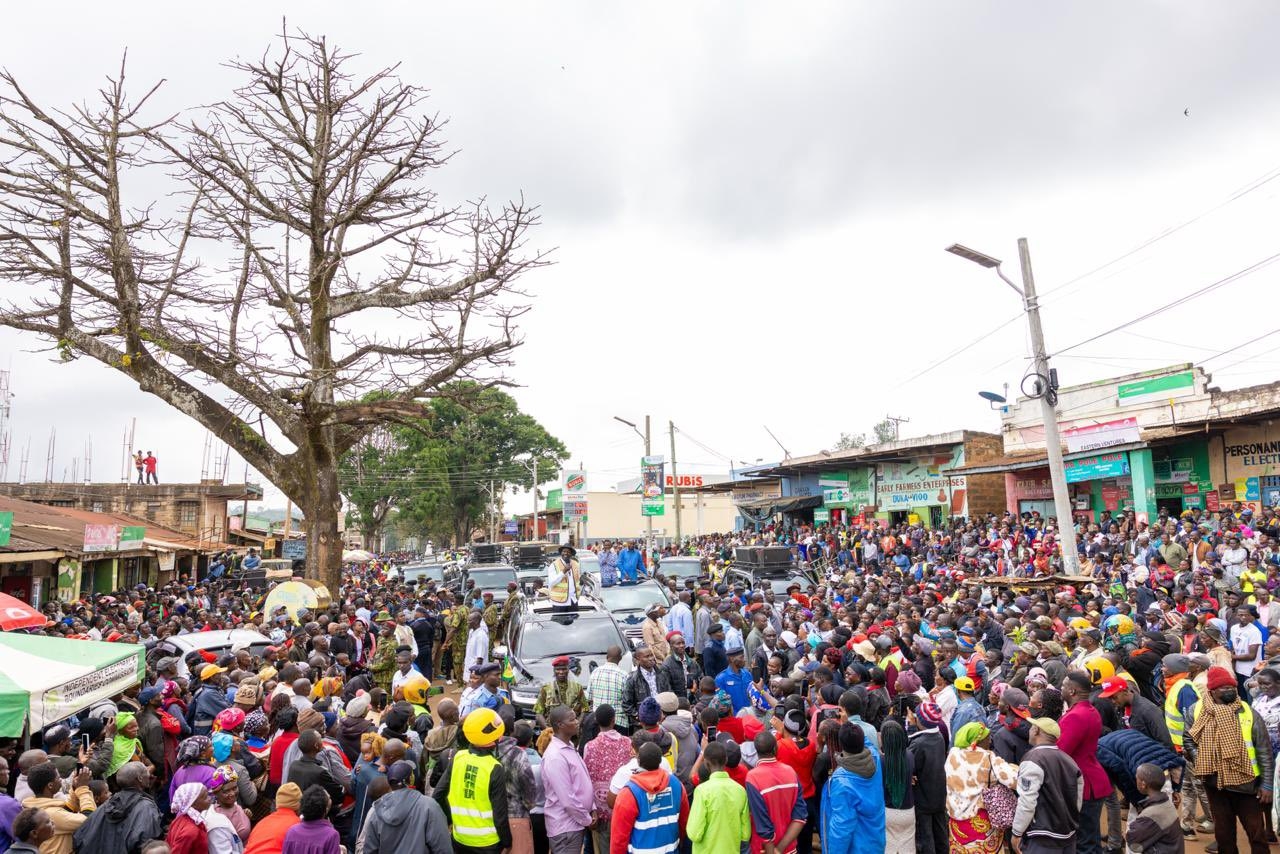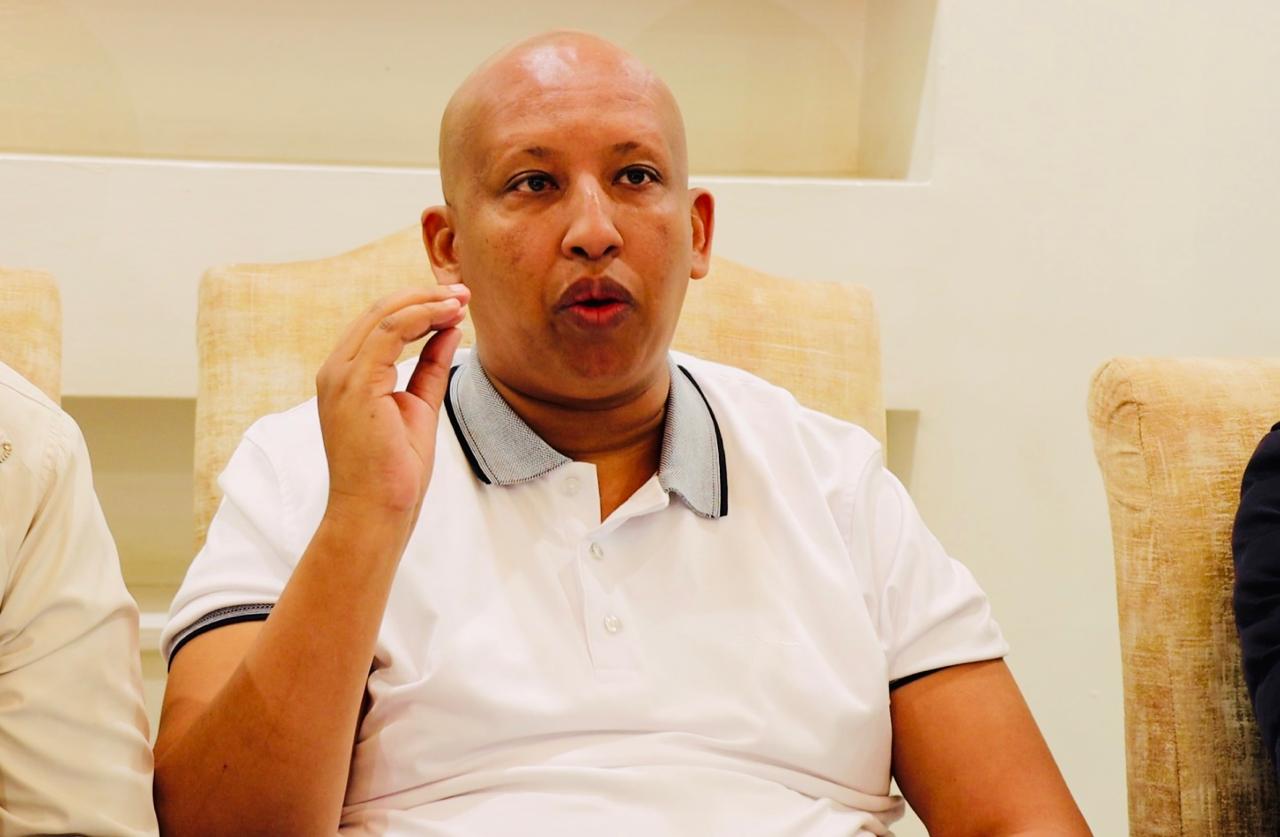 Northern Kenya PWD chair Hafid Maalim speaking to the press
in Garissa town./STEPHEN ASTARIKO
Northern Kenya PWD chair Hafid Maalim speaking to the press
in Garissa town./STEPHEN ASTARIKO
Persons with Disability have lauded President William
Ruto’s move to sign the Persons with Disabilities Rights Bill, 2025 into Law terming it as a great stride towards
inclusivity.
The
bill replaces the Persons with Disabilities Act, Cap. 133, and takes a
rights-based approach to disability.
During the ceremony that was held at State House, President
Ruto described the new law as "a progressive piece of legislation"
that reaffirms the dignity and rights of people with disabilities while also
aligning national laws with Kenya's Constitution, specifically Article 54,
which enshrines their rights.
Speaking to the press in
Garissa town, Northern
Kenya PWD chair Hafid Maalim described
the development as a major victory for human rights and dignity.
He added:“As stakeholders, advocates ,and members of
the disability community, We extend our heartfelt gratitude to
president Ruto for signing the Disability Rights bill into law. We stand ready to support its implementation
and build a more inclusive kenya for all,”.
“This landmark legislation is a monumental step towards
inclusion, dignity and equal opportunities for persons with disability across
kenya. Your leadership in advancing the rights and well-being of all citizens ,regardless
of ability, is deeply appreciated. The law marks a turning point in ensuring
that no one is left behind,” he said.
He said PWDs in Northern kenya are still faced with a myriad
of challenges among them social-economic,
cultural and infrastructural factors.
“Our people are still faced with limited access to
education, inadequate Healthcare, stigma and discrimination, poor
infrastructure and limited access to employment opportunities. We remain
optimistic that things will change for the better,” he said.
The law guarantees and affirms the rights of PWDs to
education, employment, healthcare, political participation while mandating both
National and County Governments and indeed the private sectors to fulfill their
obligations.
It prohibits all forms of discrimination against
people with disabilities in all aspects of life and requires reasonable
accommodations in public places, transportation, and information and
communication technologies.
It introduces broad financial incentives and reliefs,
such as tax breaks for employers of people with disabilities and deductions for
workplace accessibility improvements.
The Bill also imposes penalties for violating PWDs'
rights and protects them from abuse and exploitation.
A revitalized and empowered National Council for
Persons with Disabilities will oversee enforcement and coordination, serving as
an independent statutory body with broad authority to advise, investigate, and
act on disability-related issues.
Additionally, the Bill outlines clear obligations for
both national and county governments, including the implementation of national
disability policies at the local level, the formation of county advisory
committees, and a requirement that at least five percent of all employment
opportunities in county governments be reserved for persons with disabilities.
To strengthen accessibility and inclusion, the law
establishes adjustment orders that require public and private entities to
modify their facilities to accommodate PWDs.
These include incentives such as a 25% deduction from
taxable income for salaries paid to employees with disabilities, and a 50%
deduction for costs related to workplace modifications.
Closed captioning has also been implemented in local
media, particularly in newscasts, educational programming, and national-level
events.
The Bill includes strong social protection provisions,
requires universal design standards for public spaces and transportation, and
ensures rights across sectors.
It sets aside at least 5% of market stalls for people
with disabilities and exempts assistive devices from taxes and levies.
In education, the Bill guarantees inclusive learning environments that include accommodations tailored to the needs of students with disabilities. It mandates safeguards in the delivery of healthcare to people with disabilities, as well as free medical rehabilitation services.





